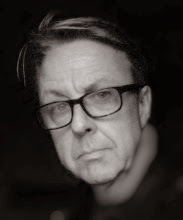 Based on Erskine Childers' 1903 spying and sailing novel set in the Frisian Islands of northern Germany, The Riddle of The Sands was directed by Tony Maylam and released in 1979.
Based on Erskine Childers' 1903 spying and sailing novel set in the Frisian Islands of northern Germany, The Riddle of The Sands was directed by Tony Maylam and released in 1979.Michael York and Simon McCorkindale star as Davies and Carruthers, two heroic British yachtsmen who foil a German plot to invade the east coast of England in a flotilla of specially designed barges.
The Riddle of the Sands' author Erskine Childers was something of an enigma. Not only was Childers a Parliamentary Clerk in the House of Commons, but he also fought for the British in the Boer War and won the Distinguished Service Cross for valour in World War 1. He then founded the Sinn Fein movement which ultimately led to his execution by an Irish Free state firing squad in 1921.
Even though it is a highly abridged version of the source novel, The Riddle of The Sands is the perfect rainy Sunday afternoon movie. It is an old fashioned but utterly charming ripping yarn that makes negotiating sandbanks and tides, and dining on bacon and eggs rather appealing. Never mind that its pace is perhaps a little leisurely for today's slam bang action audiences, the cinematography by Christopher Challis is sumptuous and is perfectly accompanied by Howard Blake's beautiful score. Using strings and woodwinds for the British heroes, Blake counterpoints with Wagnerian tones for the German elements.
Howard Blake, familiar to millions for his score for Raymond Brigg's The Snowman, had
 previously scored Ridley Scott's acclaimed 1977 debut, The Duellists. Based on the Joseph Conrad short story, The Duel, it dramatises the conflict between two French Hussar officers during the Napoleonic Wars whose rivalry is realised by a series of violent duels over a twenty year period. Blake's lush and evocative score beautifully matches the mood and changing times so stunningly visualised by Ridley Scott.
previously scored Ridley Scott's acclaimed 1977 debut, The Duellists. Based on the Joseph Conrad short story, The Duel, it dramatises the conflict between two French Hussar officers during the Napoleonic Wars whose rivalry is realised by a series of violent duels over a twenty year period. Blake's lush and evocative score beautifully matches the mood and changing times so stunningly visualised by Ridley Scott.Both the scores for The Riddle of The Sands and The Duellists demonstrate Howard Blake's mastery of a relatively small orchestra and his ability to create strong themes and get to the heart of a movie without overpowering it.


No comments:
Post a Comment